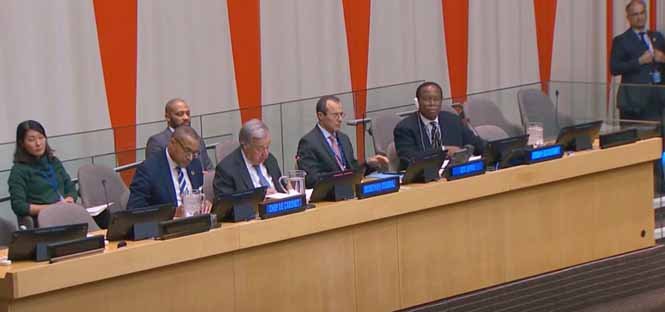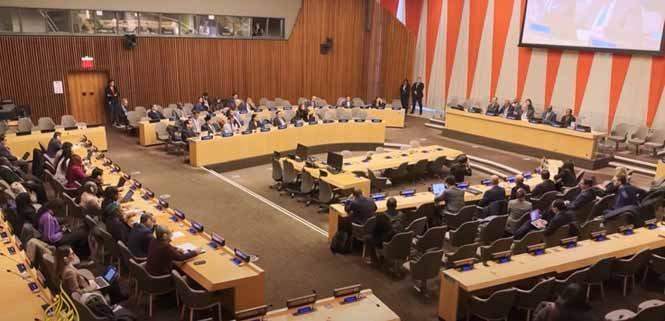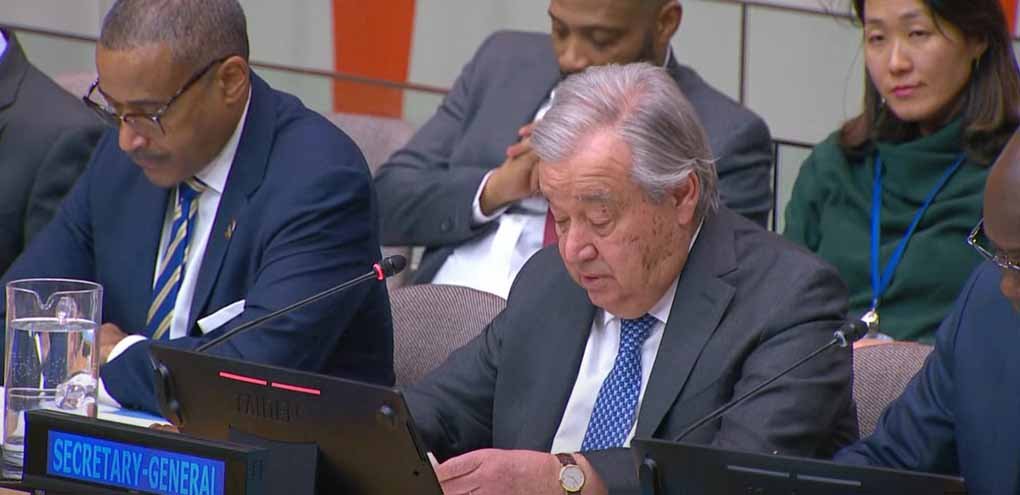Introduction: “They Want to Erase Us” – A Mother’s Fear in Gaza
Amal Al-Haddad, a 34-year-old teacher in Gaza City, keeps a small iron key hanging on her living room wall. It belonged to her grandmother, who fled her home during the 1948 Arab-Israeli war—a traumatic exodus Palestinians call the Nakba, or “catastrophe.” Today, Amal fears her children may inherit another key, one symbolizing a second forced displacement.
“They want to erase us,” she says, her voice trembling. “But Gaza is our home. We have nowhere else to go.”
Amal’s anguish mirrors the outcry erupting globally after U.S. President Donald Trump reportedly suggested resettling Palestinians outside Gaza, a move UN Secretary-General António Guterres warns could amount to ethnic cleansing. This article delves into the explosive debate, weaving together legal analysis, survivor stories, and the geopolitical powder keg threatening to destabilize the Middle East.
Trump’s “Voluntary Emigration” Idea: A Political Lightning Rod
The controversy began in late 2023 when Trump, during a closed-door meeting with Republican donors, floated the idea of relocating Palestinians from Gaza to countries like Egypt, Jordan, or Saudi Arabia. While details remain murky, leaked accounts from The New York Times describe the proposal as part of a broader strategy to “resolve” the Israeli-Palestinian conflict by reducing Gaza’s population.
Why This Strikes a Nerve
For Palestinians, the plan feels like déjà vu. Over 700,000 were displaced during the 1948 Nakba, and today, their descendants make up 70% of Gaza’s 2.3 million residents. “This isn’t about peace—it’s about erasing Palestinian identity,” says Ahmed Abu Artema, a Gaza-based journalist and organizer of the 2018 “Great March of Return” protests.
Trump’s allies defend the idea as “pragmatic.” U.S. Ambassador to Israel David Friedman told Fox News: “Gaza is unsustainable. Let’s give people a better life elsewhere.” But critics, including Biden administration officials, call it a reckless oversimplification. “Forced displacement isn’t a policy—it’s a war crime,” retorted U.S. Senator Bernie Sanders in a fiery Senate speech last week.
Ethnic Cleansing vs. “Voluntary Resettlement”: A Legal Minefield
The UN defines ethnic cleansing as “rendering an area ethnically homogeneous by using force or intimidation to remove persons from a particular group.” While Trump’s team insists their plan would be “voluntary,” human rights advocates argue that Gaza’s desperate conditions—97% undrinkable water, 45% unemployment—make true consent impossible.
Key Legal Red Flags
- Fourth Geneva Convention: Explicitly bans deportations from occupied territories. Israel withdrew from Gaza in 2005 but still controls its borders, airspace, and coastal waters, leading many legal experts to classify it as occupied.
- Rome Statute: The International Criminal Court (ICC) classifies mass displacement as a crime against humanity. In 2021, the ICC opened an investigation into alleged war crimes in Palestinian territories, putting Israeli and Hamas leaders on notice.
- The Rohingya Precedent: In 2019, the ICC prosecuted Myanmar for expelling 700,000 Rohingya Muslims—a case hauntingly similar to Gaza’s plight.
“Labeling it ‘voluntary’ doesn’t change the reality,” says Francesca Albanese, UN Special Rapporteur on Palestine. “When people are starved and bombed into submission, ‘choice’ is a fiction.”

Gaza by the Numbers: A Humanitarian Nightmare
To understand why resettlement talk terrifies Gazans, consider the strip’s dire reality:
- 90% Deprived of Clean Water: Families queue for hours at makeshift filtration stations.
- 12-Hour Daily Blackouts: Hospitals rely on diesel generators, if they can afford fuel.
- 63% Children Showing PTSD Symptoms: According to a 2023 Save the Children report.
Dr. Tarek Loubani, a Canadian-Palestinian ER physician who works in Gaza, recounts a recent shift: “A mother handed me her malnourished infant and said, ‘If they force us out, he won’t survive the journey.’ How do you respond to that?”
Global Reactions: Allies Clash, Refugees Panic
Trump’s proposal has fractured diplomatic alliances:
- Egypt’s Fury: “We will not shoulder Israel’s responsibilities,” declared President Abdel Fattah el-Sisi, whose government faces backlash for razing Palestinian homes in Sinai to create a buffer zone.
- Jordan’s Warning: Home to 2 million Palestinian refugees, Jordan fears a new influx could destabilize its economy. “We already have a state; we don’t need another,” said Foreign Minister Ayman Safadi.
- Silence from Israel: Prime Minister Benjamin Netanyahu hasn’t endorsed the plan publicly, but hardline ministers like Itamar Ben-Gvir openly advocate “encouraging voluntary emigration.”
Meanwhile, in the U.S., the debate has reignited partisan battles. While Trump vows to “reinvent Middle East peace,” President Biden’s team insists a two-state solution remains the goal—though many Palestinians dismiss this as lip service. “America brokers peace like a arsonist sells fire extinguishers,” quipped Palestinian analyst Mariam Barghouti.
The Nakba’s Shadow: “My Grandfather’s Key Is My Protest”
In Gaza’s Jabalia refugee camp, 17-year-old Aya Mansour clutches a rusted key passed down from her grandfather, who fled the village of Beit Daras in 1948. “This key is my protest,” she says. “It reminds the world we exist—and we’re not leaving.”
Psychologists warn that Trump’s rhetoric is retraumatizing a generation raised on stories of the Nakba. “Children here draw pictures of tanks and drones, not trees and sunsets,” says Gaza mental health counselor Samah Jabr. “Now they’re sketching suitcases and goodbye letters.”

What’s Next? Diplomacy, Resistance, or Catastrophe?
As tensions escalate, the UN and regional mediators scramble to avert disaster:
- Cease-Fire Talks: Egypt and Qatar are brokering negotiations between Hamas and Israel, though progress is glacial.
- Grassroots Mobilization: Palestinian activists are rallying global support via campaigns like #MyRightToReturn, which has trended in 30 countries.
- ICC Action: Prosecutor Karim Khan faces mounting pressure to prioritize Gaza displacement in his ongoing investigation.
Yet for families like Amal’s, abstract diplomacy offers little solace. “Politicians debate while we count the dead,” she says, her children playing nearby with a torn UN tent repurposed as a toy fort. “But we’ll stay. Even if the world forgets us, Gaza is ours.”
Conclusion: A Test of Humanity
Trump’s resettlement gambit isn’t just a policy proposal—it’s a litmus test for the international order. Will powerful nations uphold laws designed to protect the vulnerable, or will Gaza become another footnote in history’s long list of erased communities? As Amal’s grandmother’s key silently testifies, the answer will define more than borders; it will define our collective conscience.
Related Video (Video Link)
Sources
- The New York Times: “Leaked Details of Trump’s Gaza Resettlement Proposal”
- Al Jazeera: “Gaza’s Water Crisis: A Weapon of Mass Suffering”
- BBC: “UN Warns of Ethnic Cleansing in Gaza”
- Human Rights Watch: “Forced Displacement and International Law”
- Save the Children: 2023 Report on Gaza’s Mental Health Crisis
Explore More
- Trump’s Foreign Aid Freeze Boosts Authoritarian Regimes Worldwide
- Netanyahu Delays Ceasefire Talks, Meets Trump Amid Escalating Tensions
- Israeli Prime Minister Netanyahu Heads to U.S. for High-Stakes Gaza Talks with Trump
- Israeli Troops Kill 22 Civilians Making Their Way Back to Homes
- Hamas Releases Four Israeli Soldiers in Prisoner Exchange Amid Ceasefire
- Israel’s Ongoing Operations in Jenin Amid Gaza Ceasefire
- Israeli Strikes Escalate in Gaza Ahead of Ceasefire: Dozens Dead
- Israeli Strikes in Gaza Kill Dozens Amid Intensified Push for Ceasefire
- Israeli Airstrikes in Gaza Claim 12 Lives, Including Women and Children
- UN Official Urges De-escalation Amid Rising Tensions in Yemen, Israel, and the Red Sea

